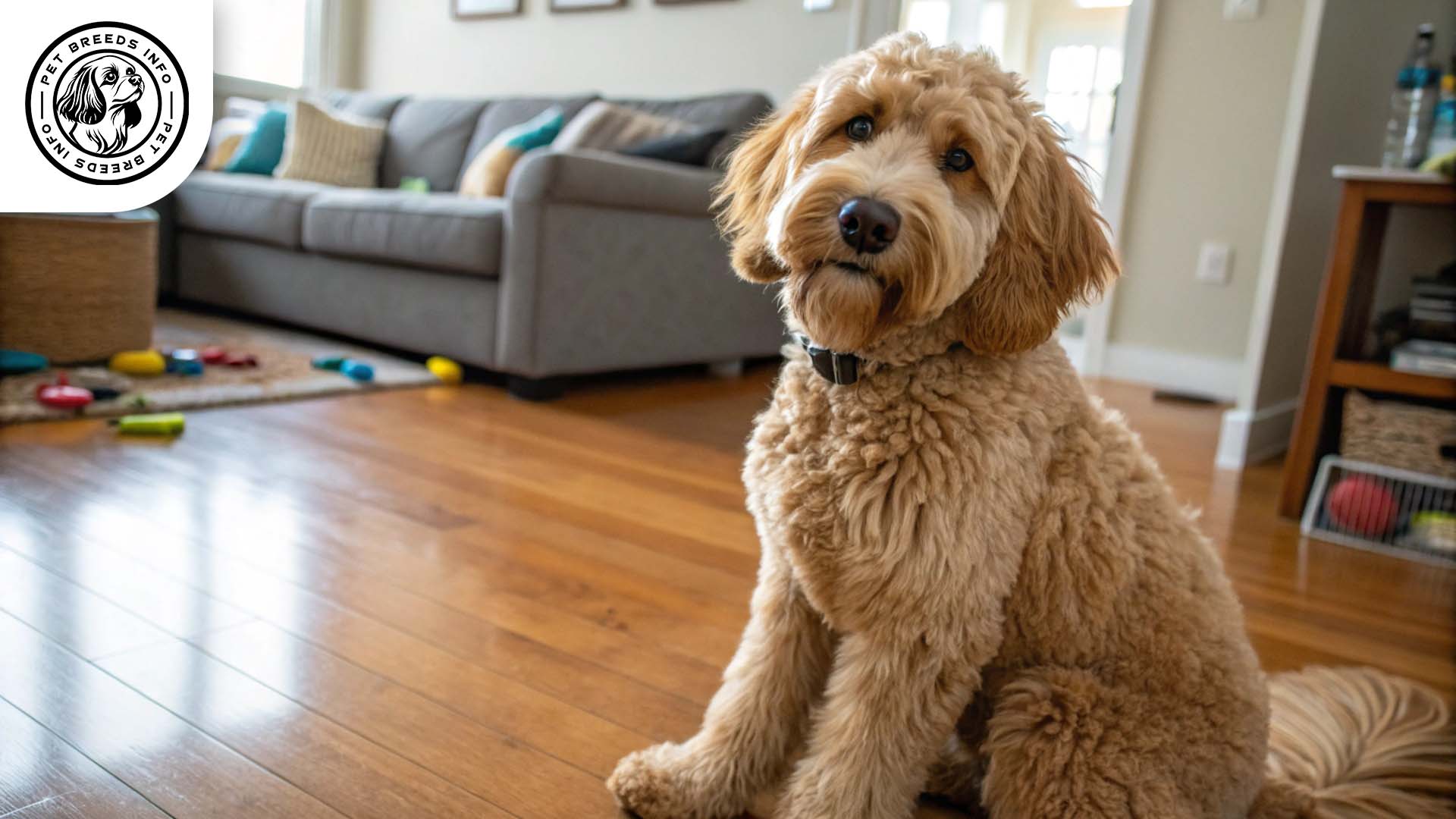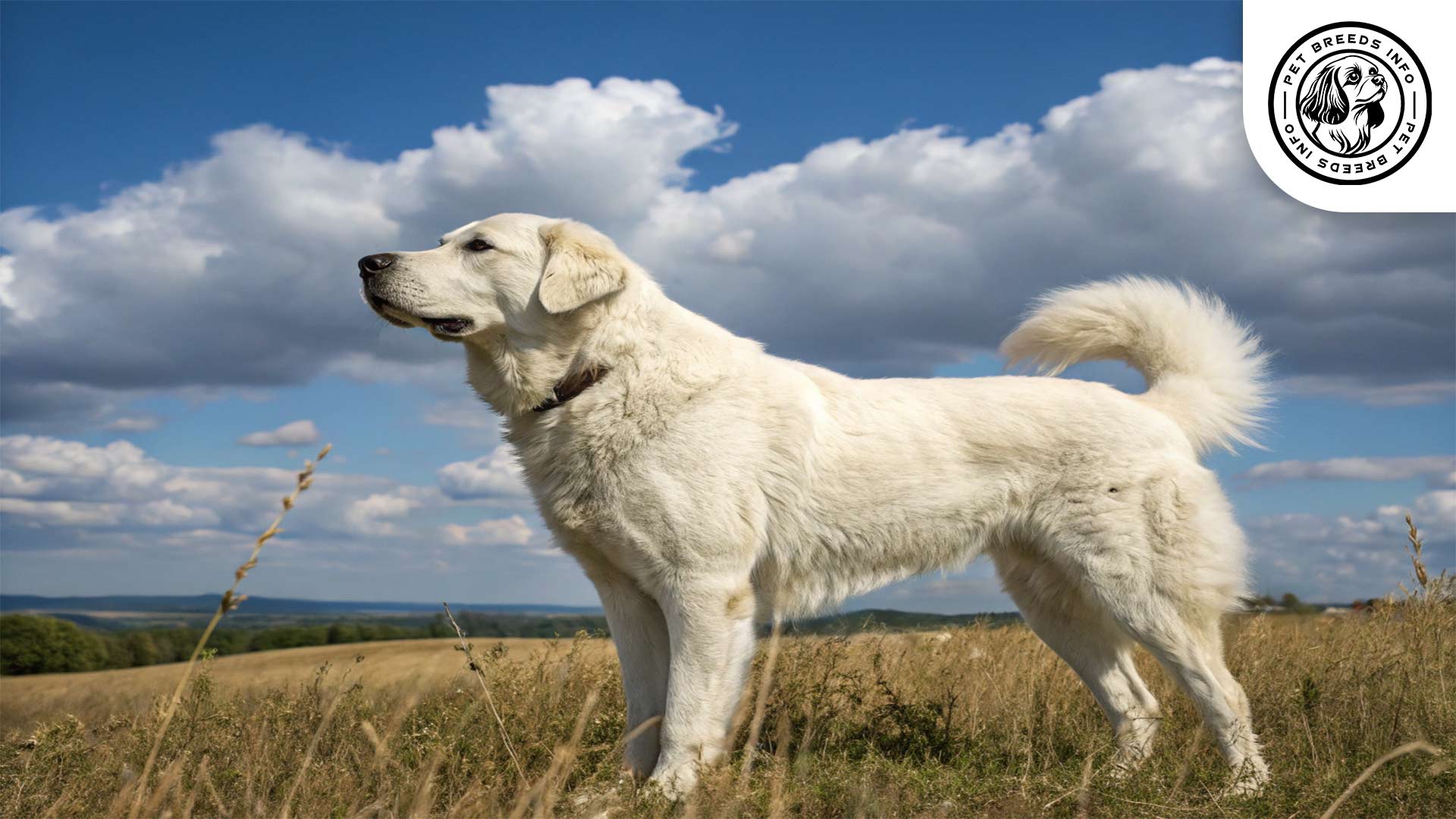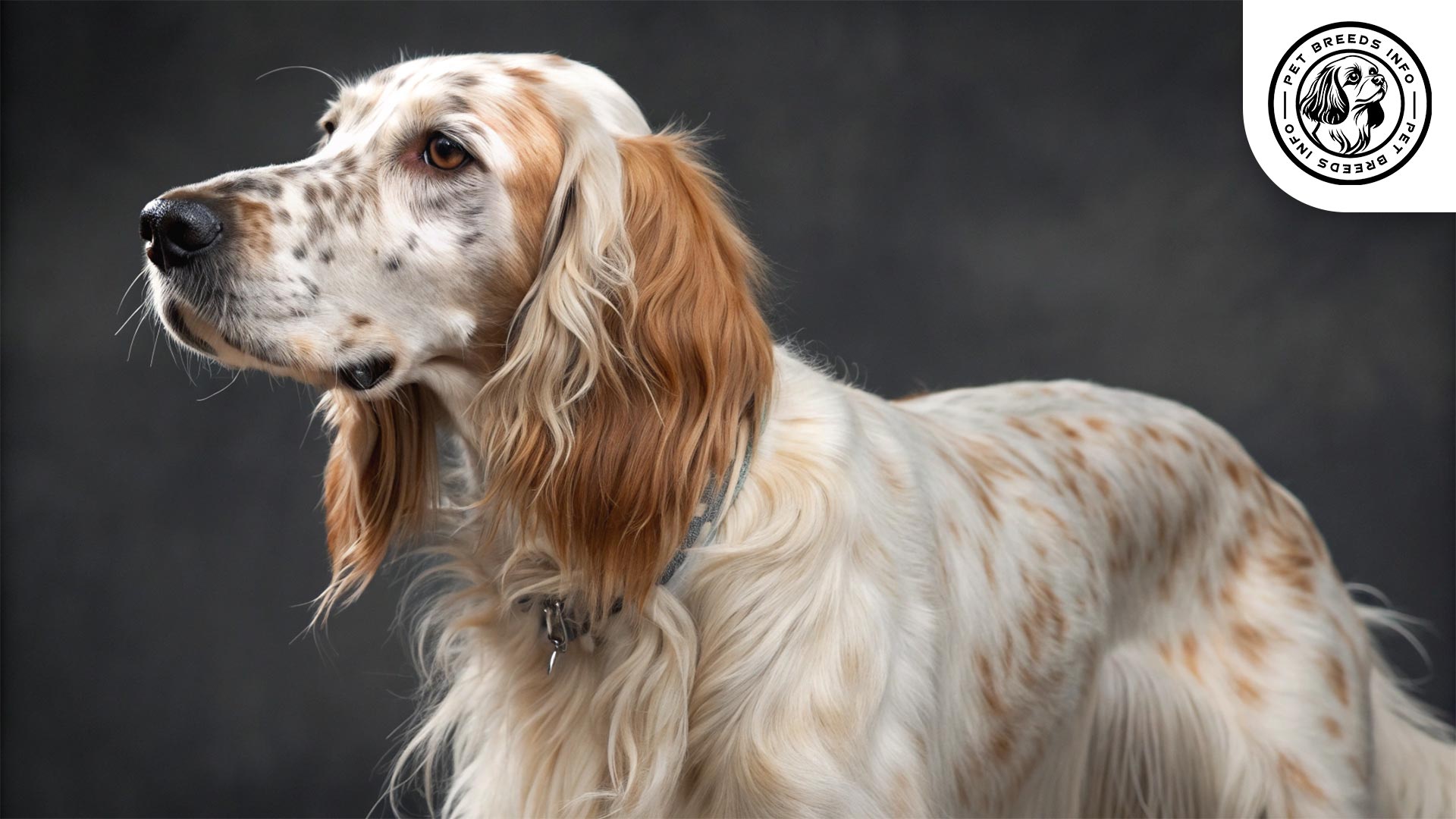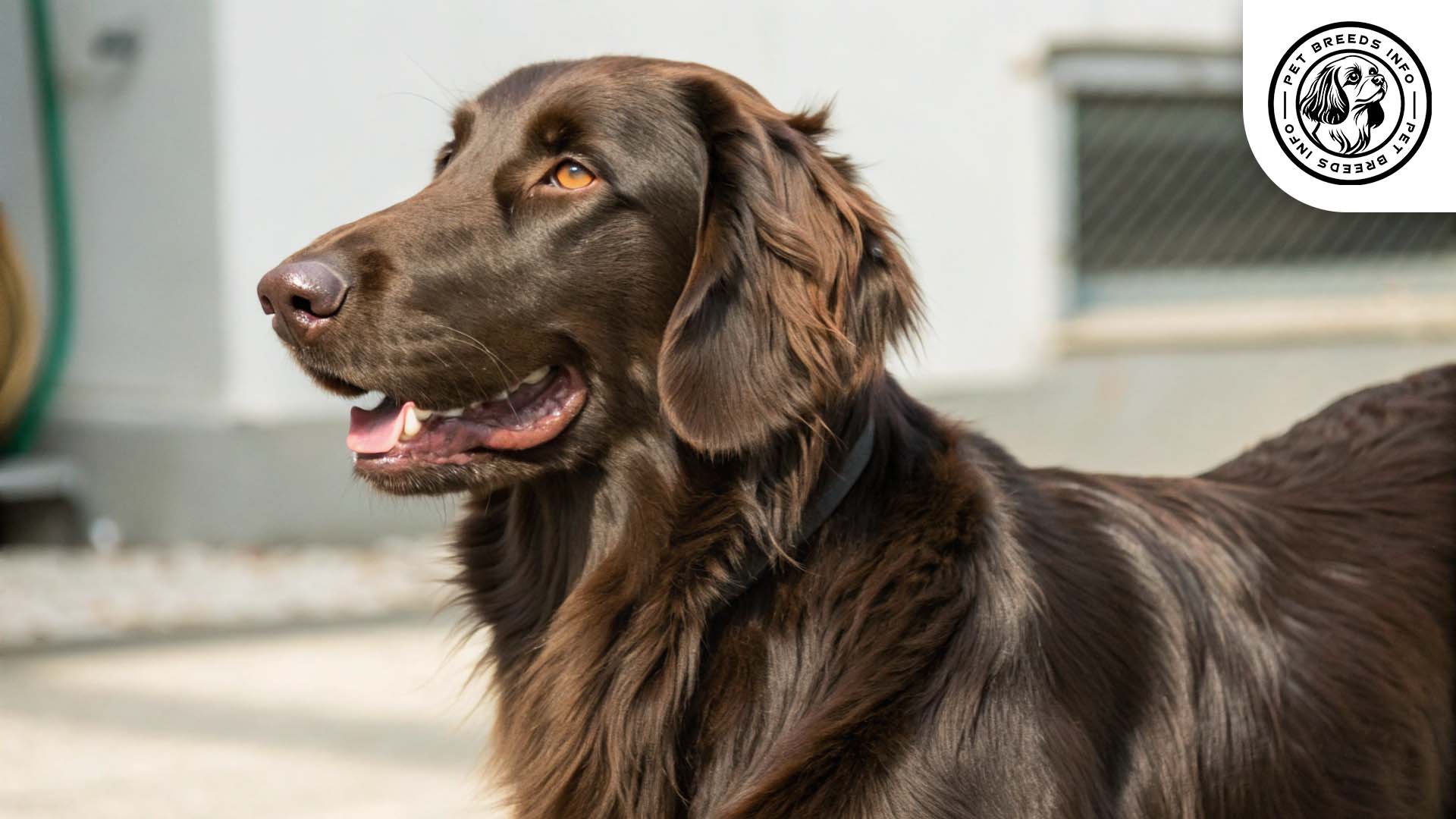Australian Labradoodle Dog Breed: Size, Price & Personality
General Introduction of the Breed
The Australian Labradoodle is a unique and intelligent dog breed originally developed in Australia. It is also sometimes referred to simply as “Labradoodle,” though it differs from the standard Labradoodle in terms of lineage and traits.
This breed was first developed in the 1980s by breeding Labrador Retrievers, Poodles, and later, other breeds like the Cocker Spaniel to achieve specific traits such as hypoallergenic coats and a friendly temperament. It was primarily bred as a guide dog for individuals with allergies.
Table of Contents
| Weight | 40 – 65 lbs (18 – 30 kg) |
| Lifespan | 12 – 15 years |
| Diet | High-quality dry kibble, wet food, or raw diet; portion-controlled meals twice a day |
| Care | Regular exercise, brushing at least twice a week, routine grooming, and dental hygiene |
| Health | Prone to hip dysplasia, PRA, allergies, and ear infections |
| Color | Chocolate, cream, apricot, black, red, and parti-colored variations |
| Nature | Intelligent, affectionate, playful, and social; thrives on companionship |
| Price | $2,000 – $4,000 |
Physical Characteristics
The Australian Labradoodle is a medium-sized breed. Males typically stand between 20 to 24 inches (51 to 61 cm) tall and weigh around 50 to 65 pounds (22 to 30 kg). Females are slightly smaller, standing 18 to 22 inches (46 to 56 cm) tall and weighing 40 to 55 pounds (18 to 25 kg).
Their coat is soft and comes in three main types: fleece, wool, and hair. Common colors include chocolate, cream, apricot, black, red, and parti-colored variations.
They have expressive, round eyes that are usually brown or hazel. Their ears are medium-sized, slightly floppy, and sit close to the head. The tail is long and slightly curved, often covered with soft fur.
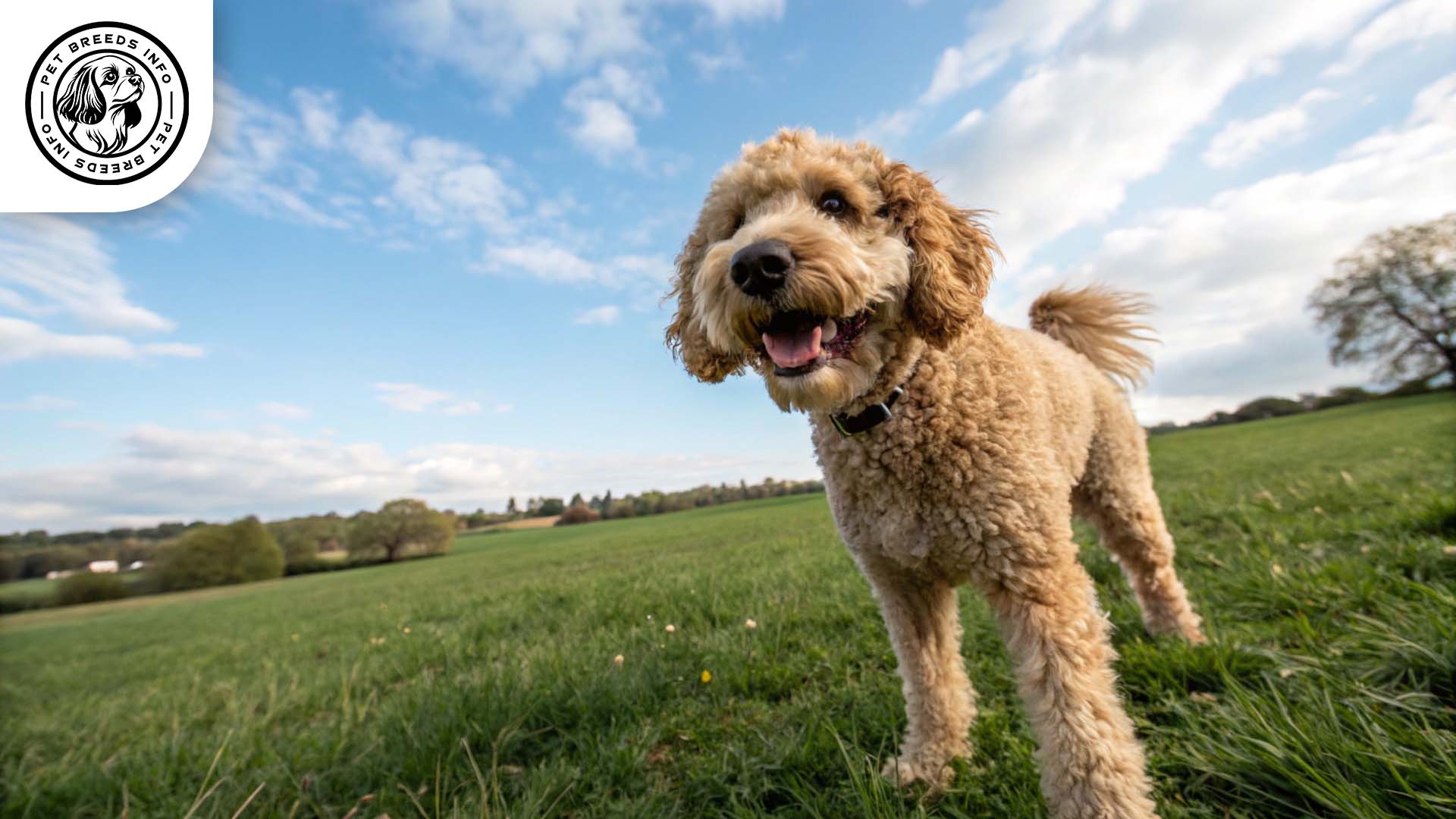
Personality and Temperament
Australian Labradoodles are highly intelligent and easy to train. They respond well to positive reinforcement and thrive on mental stimulation.
This breed has an energetic personality and requires regular activity to stay happy. They are affectionate and strongly bonded to their families, making them excellent companion dogs.
Social by nature, they get along well with children, strangers, and other pets. They have a playful side with moderate hunting instincts. Sensitive to environmental changes, they adjust best to stable, loving households.
Read More: Chiweenie Dog
Care and Maintenance Requirements
These dogs need regular exercise, including daily walks, playtime, and interactive activities to prevent boredom.
The Australian Labradoodle is adaptable to various living environments, including apartments, as long as it receives enough exercise. However, a home with a yard is ideal.
Grooming is necessary to maintain their non-shedding coat. Brushing should be done at least twice a week to prevent mats and tangles. Bathing should be done every few weeks, and regular ear cleaning, nail trimming, and dental care are essential.
They can be sensitive to extreme heat, so they should not be left outside for long periods in hot climates.
Diet and Nutrition
A high-quality diet of dry kibble, wet food, or a raw diet can suit this breed. A well-balanced diet rich in proteins, healthy fats, and carbohydrates is recommended.
The breed is prone to weight gain, so portion control is essential. Meals should be divided into two servings per day to maintain a healthy metabolism.
Foods to avoid include chocolate, grapes, onions, and excessively fatty foods, as these can harm their health.
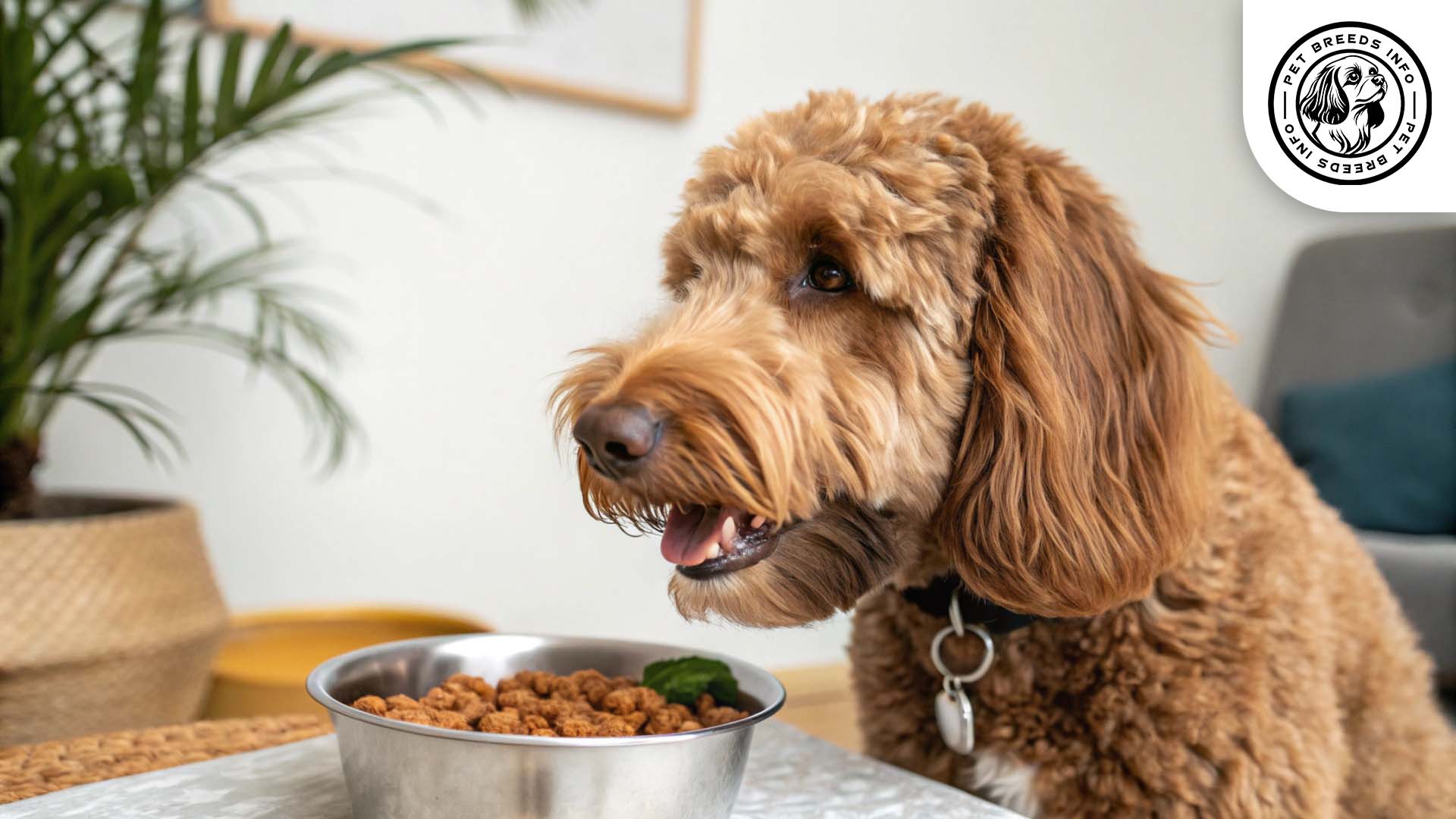
Health and Common Medical Issues
Australian Labradoodles are generally healthy but may be prone to genetic conditions such as hip dysplasia, progressive retinal atrophy (PRA), and allergies.
They are sensitive to certain health issues like ear infections due to their floppy ears, so regular cleaning is necessary.
The average lifespan of this breed is around 12 to 15 years.
Routine vet check-ups, vaccinations, and preventive care play a crucial role in maintaining their health.
Read More: Pomsky Dog
Training and Behavior Management
This breed is highly trainable and responds well to consistent and positive reinforcement techniques.
Obedience training and early socialization are crucial to developing a well-rounded dog. They excel in training for therapy work, agility, and obedience competitions.
Encouraging good behavior with rewards and avoiding harsh training methods ensures they remain well-mannered and confident.
Interaction with Other Animals and Humans
Australian Labradoodles are great with kids, making them an excellent family pet.
They tend to get along well with other pets, including cats and other dogs, especially when socialized from an early age.
This breed is suited for families, couples, and even individuals looking for a loyal companion.
They are friendly and social but do prefer being close to their owners rather than being left alone for long periods.
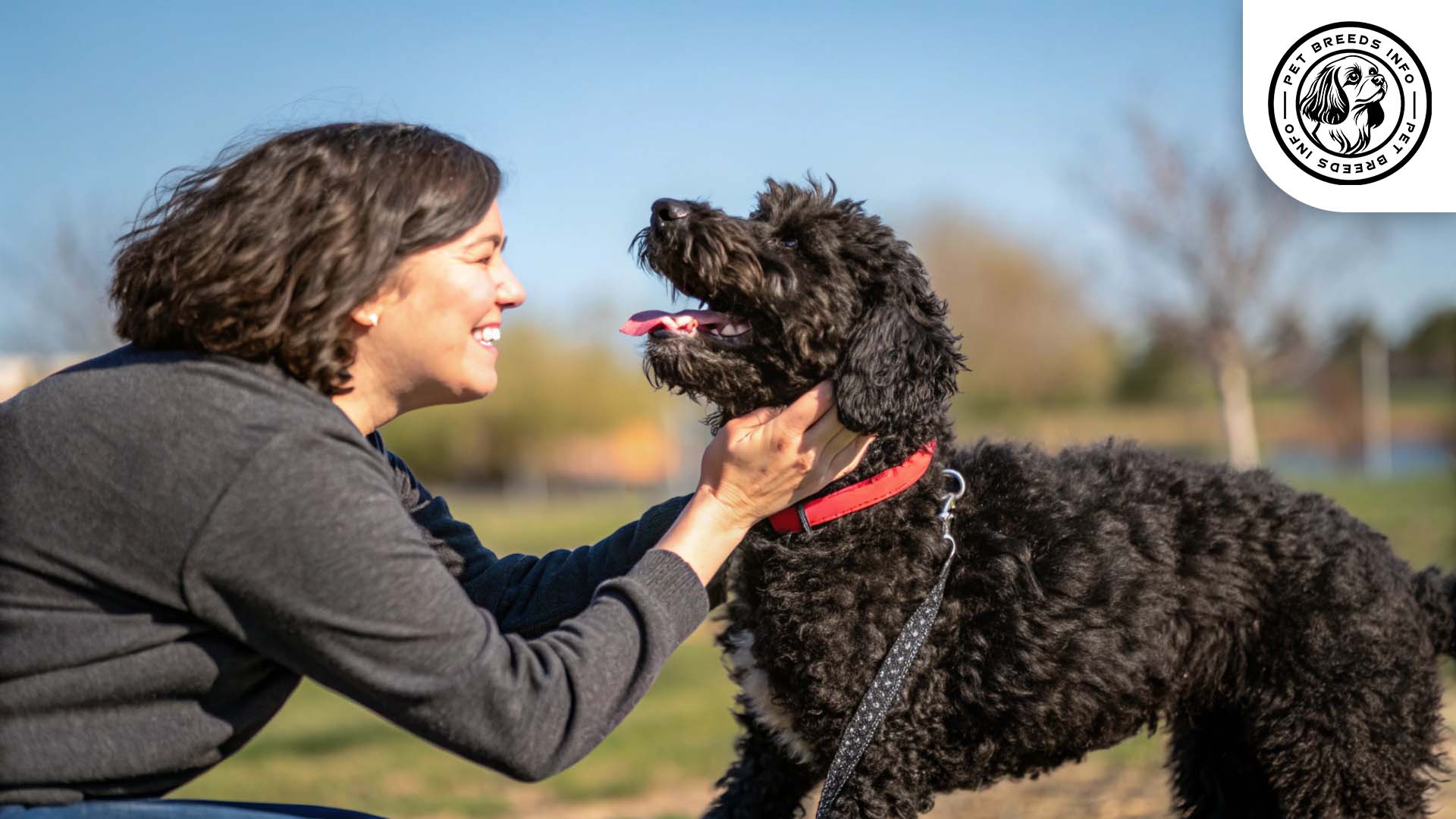
Price and Availability
The price for an Australian Labradoodle puppy varies, generally ranging from $2,000 to $4,000, depending on the breeder and lineage.
It is essential to choose a reputable breeder to ensure a healthy puppy. Adoption is also an option, as shelters and rescue organizations may occasionally have this breed available.
Read More: Chorkie Dog Breed
Conclusion and Final Thoughts
The Australian Labradoodle is a fantastic companion for families, active individuals, and even first-time dog owners. Their intelligence, affectionate nature, and hypoallergenic coat make them a highly desirable breed.
They thrive in homes that provide them with love, attention, and exercise. Potential owners should be prepared for regular grooming and training to maintain their overall well-being.
If you are looking for a friendly, playful, and devoted pet, the Australian Labradoodle could be the perfect addition to your home.
FAQ
Are Australian Labradoodles hypoallergenic?
Yes, they have low-shedding coats, making them a good choice for allergy sufferers.
How much exercise does an Australian Labradoodle need?
They require daily walks, playtime, and mental stimulation to stay happy and healthy.
Are Australian Labradoodles good with children?
Yes, they are friendly, patient, and great family pets, especially with proper socialization.
Do Australian Labradoodles bark a lot?
They are not excessive barkers but may alert their owners when needed.
What are common health concerns for Australian Labradoodles?
They may suffer from hip dysplasia, progressive retinal atrophy, allergies, and ear infections.
